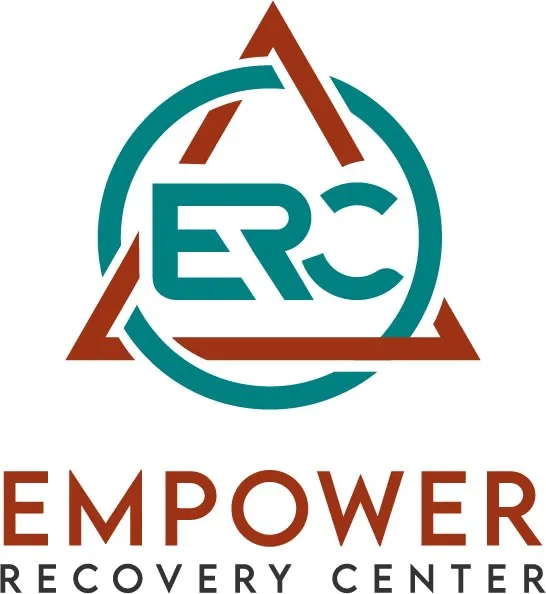Explore top schizophrenia treatment centers and facilities in Los Angeles and nearby areas. Schizophrenia treatment centers offer comprehensive care for individuals experiencing symptoms such as delusions, hallucinations, and disorganized thinking. Programs emphasize medication management, psychotherapy, and strong support networks to enhance daily functioning and quality of life. With structured, compassionate care, these centers empower individuals to navigate the challenges of schizophrenia and build fulfilling, independent lives.
Ads
More Info
Advertisement Disclosure
Our website is funded by advertisers who pay for prominently labeled placements.
Read More32 Rehab Centers were found
Filters
Locations
- Los Angeles(+98)
- Culver City(+14)
- Westlake Village(+13)
- Woodland Hills(+11)
- Beverly Hills(+10)
- Santa Monica(+9)
- Sherman Oaks(+7)
- West Hollywood(+6)
- Malibu(+5)
- Chatsworth(+5)
- Pasadena(+5)
- Encino(+5)
- Redondo Beach(+4)
- Lancaster(+4)
- Reseda(+4)
- Studio City(+4)
- Northridge(+3)
- San Mateo(+3)
- Lynwood(+3)
- Vernon(+3)
- Van Nuys(+3)
- Tarzana(+3)
- North Hollywood(+3)
- Glendale(+3)
- Gardena(+3)
- Riverside(+3)
- Granada Hills(+2)
- Shadow Hills(+2)
- Venice(+2)
- Orange County(+2)
- Pomona(+2)
- West Hills(+2)
- Valley Village(+2)
- Burbank(+2)
- Brentwood(+2)
- Long Beach(+2)
- Sun Valley(+1)
- Torrance(+1)
- San Jacinto(+1)
- San Pedro(+1)
- Upland(+1)
- Whittier(+1)
- Toluca Lake(+1)
- Thousand Oaks(+1)
- Simi Valley(+1)
- Mission Viejo(+1)
- Acton(+1)
- Beaumont(+1)
- Wilmington(+1)
- Panorama City(+1)
- Anaheim(+1)
- Laguna Hills(+1)
- Inglewood(+1)
- Alhambra(+1)
- Rosemead(+1)
- Maywood(+1)
- Manhattan Beach(+1)
- Monterey Park(+1)
- Claremont(+1)
- Covina(+1)
- La Puente(+1)
- Pico Rivera(+1)
- San Fernando(+1)
- Azusa(+1)
- Santa Fe Springs(+1)
- Glendora(+1)
- Agoura Hills(+1)
- El Segundo(+1)
- Duarte(+0)
- Sunland(+0)
- Downey(+0)
- Cudahy(+0)
- El Monte(+0)
- Compton(+0)
- Hermosa Beach(+0)
- Cerritos(+0)
- Calabasas(+0)
- Bellflower(+0)
- Bell Gardens(+0)
- Avalon(+0)
- Arcadia(+0)
- Altadena(+0)
- Paramount(+0)
- South El Monte(+0)
- Walnut(+0)
- West Covina(+0)
- Santa Clarita(+0)
- San Gabriel(+0)
- San Dimas(+0)
- Rolling Hills(+0)
- Orange(+0)
- Hawaiian Gardens(+0)
- Palmdale(+0)
- Norwalk(+0)
- Montebello(+0)
- Lakewood(+0)
- South Pasadena(+0)
- Carson(+0)
- Hawthorne(+0)
Conditions
- Drug(+278)
- Alcohol(+219)
- Mental Health(+195)
- Opioid(+193)
- Cocaine(+184)
- Trauma(+180)
- Methamphetamine(+177)
- Benzodiazepines(+174)
- Heroin(+173)
- Prescription Drugs(+159)
- Depression(+152)
- Anxiety(+149)
- Xanax(+145)
- Synthetic Drugs(+138)
- PTSD(+133)
- Adderall(+131)
- Marijuana(+112)
- Bipolar(+109)
- Ecstasy(+104)
- MDMA(+99)
- Behavioral Health(+93)
- LSD(+93)
- Psychedelics(+91)
- Fentanyl(+71)
- Stress(+71)
- OCD(+69)
- Personality Disorders(+63)
- ADHD(+61)
- Gambling(+38)
- Eating Disorders(+35)
- Anorexia(+34)
- Binge Eating Disorder(+34)
- Bulimia(+33)
- Schizophrenia(+32)
- Gaming(+28)
- Internet Addiction(+27)
- Sex Addiction(+25)
- Burnout(+23)
- Pornography(+22)
- Shopping(+10)
- Narcissism(+8)
Insurances
- BlueCross BlueShield(+129)
- Aetna(+126)
- Anthem(+105)
- Cigna(+105)
- United Healthcare(+66)
- Humana(+63)
- Optum(+53)
- Medicaid(+53)
- MHN(+51)
- Magellan Health(+47)
- Kaiser Permanente(+39)
- Medicare(+31)
- GEHA(+31)
- ComPsych(+29)
- Highmark(+25)
- AmeriHealth(+13)
- Tufts Health(+11)
- Oscar(+9)
- CareFirst(+9)
- Molina Healthcare(+8)
- Intermountain Healthcare(+6)
- Beacon Health Options(+2)
- UMR(+2)
- NYSHIP(+2)
- ILWU(+2)
- Geisinger(+2)
- Empire Life(+2)
- Empire BCBS(+2)
- Bright Health(+2)
- GuideWell(+1)
Therapies

$1,750-$3,500

$1,50

Call for rates - 30-90 days

$175

N/A

$1,80
Comprehensive Schizophrenia Treatment Centers and Support in Los Angeles
Schizophrenia is a severe mental health disorder that affects how a person thinks, feels, and behaves. It is often misunderstood, leading to stigma and isolation for those who suffer from it. Individuals with schizophrenia may experience hallucinations, delusions, disorganized thinking, and impaired social functioning, making daily life challenging without proper treatment.
Los Angeles offers a wide range of mental health treatment options for schizophrenia, including psychiatric care, therapy, and medication management. While schizophrenia is a chronic condition, it can be managed effectively with the right combination of treatment and support. Many centers also support individuals with co-occurring conditions such as anxiety, depression, or personality disorders.
Understanding Schizophrenia and Its Symptoms
Schizophrenia typically emerges in late adolescence or early adulthood and can significantly impact a person’s ability to function. The condition is characterized by episodes of psychosis, where individuals lose touch with reality. These episodes may involve auditory or visual hallucinations, paranoid delusions, and extreme confusion.
Beyond psychotic symptoms, many individuals with schizophrenia struggle with cognitive impairments, including difficulties with memory, problem-solving, and focus. Some experience negative symptoms such as lack of motivation, emotional withdrawal, and reduced speech. These aspects of the disorder can make it difficult to maintain employment, relationships, and independence.
The Importance of Early Intervention
The earlier schizophrenia is diagnosed and treated, the better the long-term outcomes. Early intervention helps prevent severe episodes, reduces the risk of hospitalization, and improves overall quality of life. Many individuals who receive timely treatment are able to manage their symptoms effectively and lead fulfilling lives. Early intervention programs may also support people with other serious conditions, such as PTSD or ADHD.
Treatment should begin as soon as symptoms appear, as delaying care can lead to worsening symptoms and increased difficulty in managing the condition. Many mental health professionals in Los Angeles specialize in early psychosis intervention programs designed to provide comprehensive support for those experiencing their first episode of schizophrenia.
Medication as a Key Component of Treatment
Medication is one of the most effective ways to manage schizophrenia symptoms. Antipsychotic medications help reduce hallucinations, delusions, and disorganized thinking. While medications do not cure schizophrenia, they can significantly improve daily functioning and prevent psychotic episodes.
There are two main types of antipsychotic medications:
- Typical antipsychotics, which are older drugs that help control psychosis but may cause movement-related side effects
- Atypical antipsychotics, which are newer medications that tend to have fewer motor side effects but may impact metabolism
Finding the right medication and dosage often takes time, and adjustments may be necessary to balance symptom relief with potential side effects. Some individuals benefit from long-acting injectable medications that provide consistent symptom management without the need for daily pills.
Therapy and Psychosocial Support
While medication plays a critical role in treatment, therapy and psychosocial interventions are equally important. Cognitive behavioral therapy helps individuals challenge and reframe distorted thinking patterns, while social skills training improves communication and daily functioning. Many schizophrenia treatment programs in Los Angeles offer family therapy to educate loved ones on how to provide support and manage challenges.
Rehabilitation programs assist individuals in developing independent living skills, job training, and social engagement opportunities. For those who require structured daily support, residential and outpatient levels of care are available to meet diverse needs. Support groups also play a crucial role in helping individuals connect with others who understand their experiences, reducing feelings of isolation.
The Role of Hospitalization and Crisis Intervention
During severe episodes of schizophrenia, hospitalization may be necessary to stabilize symptoms and ensure safety. Psychiatric hospitals and crisis stabilization units in Los Angeles provide short-term, intensive care for individuals experiencing acute psychosis. Inpatient treatment allows for medication adjustments, structured therapy, and a safe environment until symptoms are under control.
For those who require long-term care, residential treatment facilities offer extended support in a structured setting. These programs provide daily medical supervision, therapy, and skill-building activities to help individuals reintegrate into society.
Schizophrenia and Co-Occurring Disorders
Many individuals with schizophrenia also experience co-occurring mental health conditions, such as depression, anxiety, or substance use disorders. Addressing these conditions is essential for comprehensive treatment. Dual diagnosis programs in Los Angeles specialize in treating both schizophrenia and additional mental health challenges, ensuring a holistic approach to care. If substance use is involved, integrated treatment can also address drug addiction or alcohol use disorders alongside psychiatric care.
Substance abuse is particularly common among individuals with schizophrenia, as some use drugs or alcohol to self-medicate their symptoms. However, substance use can worsen psychotic symptoms and interfere with medication effectiveness. Integrated treatment that combines addiction recovery with psychiatric care provides the best outcomes.
Life After Treatment: Managing Schizophrenia Long-Term
Schizophrenia is a lifelong condition, but with proper treatment, many individuals lead productive and fulfilling lives. Ongoing therapy, medication management, and support from mental health professionals help maintain stability.
Community-based programs in Los Angeles provide case management services, housing assistance, and peer support groups to help individuals stay engaged in their recovery. Many individuals also benefit from vocational rehabilitation programs that help them develop job skills and re-enter the workforce.
Developing a strong support network, maintaining a structured routine, and practicing self-care strategies are key components of long-term schizophrenia management. While challenges may arise, consistent treatment and support can greatly improve quality of life.
Finding the Right Schizophrenia Treatment in Los Angeles
Choosing the right treatment program depends on individual needs and symptom severity. Some individuals require intensive inpatient care, while others benefit from outpatient programs that provide therapy and medication management. Factors such as insurance coverage, location, and available support services should be considered when selecting a treatment provider. Many providers offer evidence-based therapies tailored to individual needs.
Consulting with a mental health professional can help determine the best course of action, ensuring individuals receive the level of care they need to manage their condition effectively.
Frequently Asked Questions
How do I know if I or a loved one has schizophrenia?
Can schizophrenia be cured?
What happens if schizophrenia is left untreated?
Is hospitalization always necessary for schizophrenia treatment?
Ads
More Info
Advertisement Disclosure
Our website is funded by advertisers who pay for prominently labeled placements.
Read More







































